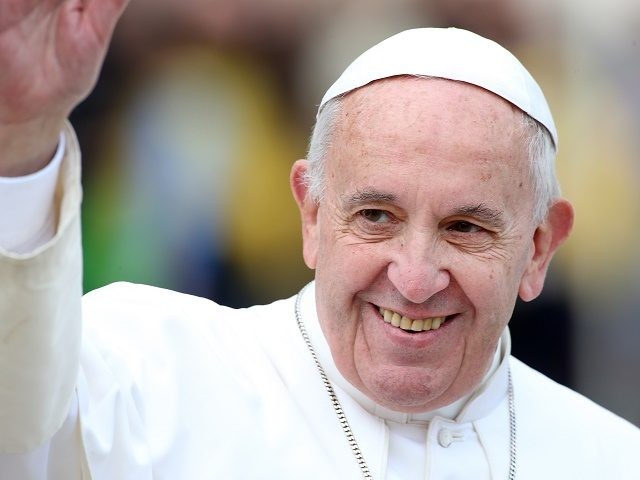Ideology has given way to reality as Pope Francis donated tons of cost-effective “fuel briquettes” to heat the homes of internally displaced persons (IDPs) in Ukraine this winter.
As part of the “Pope for Ukraine” initiative, Francis donated more than 2.5 tons of fuel per displaced family cared for by the parish of the Holy Theotokos in the village of Vilcha. The combustible fuel briquettes reportedly will be sufficient to heat the homes and apartments of more than a hundred resettled families until the end of this heating season and throughout next winter as well.
The politically incorrect gift highlights the cost-effectiveness and ready availability of fossil fuels, which were responsible for bringing about the industrial revolution throughout the developed world.
The Pope’s gift of fuel, which arrived on March 7, marks the first stage of a humanitarian aid project that will include providing foodstuffs and hygiene products to over a hundred families of IDPs in the Vovchansk district of eastern Ukraine.
Pope Francis has been a vocal advocate of clean, renewable energy and the reduction of carbon emissions. His groundbreaking 2015 encyclical letter Laudato Si on care for the environment was the first teaching letter of its sort in the history of the Catholic Church. In that text, Francis wrote of an “urgent need” to take steps leading to the substitution of fossil fuels with alternative energy sources.
At the same time, however, the Pope acknowledged that “many professionals, opinion makers, communications media and centers of power, being located in affluent urban areas, are far removed from the poor, with little direct contact with their problems.” The dire situation of displaced families in Ukraine manifests how the pressing needs of the poor must take priority over ideological concerns, since they don’t have the luxury of expensive forms of alternative energy.
Francis himself has warned that when Christian charity is not at the core of the Church’s message, “it is not the Gospel which is being preached, but certain doctrinal or moral points based on specific ideological options.”
“Any Church community, if it thinks it can comfortably go its own way without creative concern and effective cooperation in helping the poor to live with dignity and reaching out to everyone, will also risk breaking down, however much it may talk about social issues or criticize governments,” he wrote.
In 2015, Forbes magazine published an article titled “How Opposition to Fossil Fuels Hurts the Poor Most of All.” In the essay, Alex Epstein argued that efforts by the UN and certain individual governments to massively restrict fossil fuel energy would punish the very people who need them most: the poor.
Fossil fuels, he contended, provide the “energy that underdeveloped countries need to grow and indeed to survive,” as the recent history of India and China attest.
Thanks to the availability of fossil fuels, he wrote, “life got better for billions of people in just a few decades” while “the infant mortality rate has plummeted.”
While everyone would prefer clean, renewable energy sources, the number one concern of the nations of the world must be meeting the real needs of real human beings—which at present means access to cheap fossil fuels. Pope Francis would no doubt agree as his recent actions would seem to indicate.
Father Serhiy Koval, the local parish administrator in Vilcha, expressed his gratitude to Pope Francis for his timely aid, as reports suggest that the only kind of support these people have received has come from the Church and parishioners.
Follow Thomas D. Williams on Twitter Follow @tdwilliamsrome

COMMENTS
Please let us know if you're having issues with commenting.